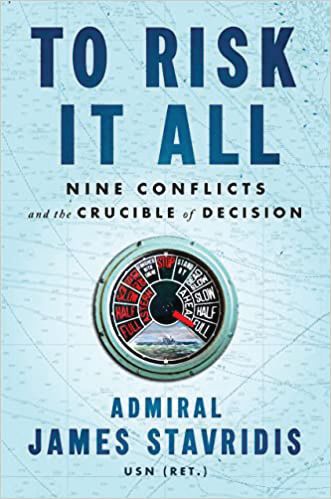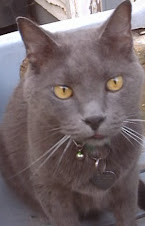I have several friends who review books each month. Erika, Jeannie, and Mae are all voracious readers. I, on the other hand, don't have an audible or a kindle, so I am one who reads books that require me to turn the pages one by one. I am a slow reader and people have been amazed I have gotten so far in school. I read it once and remember it. I don't have to go back and read it a second time, unless it is so convoluted I don't understand it the first time. That one advantage has been a lifesaver when it came to school. I seldom studied for a test, because I knew what I had read. Having said that, I know my friends I mentioned above read for pleasure and choose the books they want to read. That is not the case with this book.
My no-name, no-photos-allowed group met three weeks ago on Wednesday. The month before that we finally got our act together. After a rather rocky start, we chose numbers from a basket and the person who got # 1 chose the first book. For the life of me, I have no idea why she chose this book, but I was not looking forward to reading it. Thankfully I didn't have to buy it. The person who chose the book had two copies and she loaned them out to each of us to read and make notes. We had a total of two months to read and prepare to discuss this book.
 This is the book we had to review. It is Admiral James Stavridis’ "To Risk It All: Nine Conflicts and the Crucible of Decision."
This is the book we had to review. It is Admiral James Stavridis’ "To Risk It All: Nine Conflicts and the Crucible of Decision."
This is a book about decision making gleaned from case studies in the U.S. Navy. There were nine cases ranging from 1779 to 2021. I was actually familiar with one of these conflicts, so I will start there.
If you are a news junkie, you will have heard the name Brett Crozier. He was the captain of the ship (Theodore Roosevelt) that was in the Pacific in March, 2020 when Covid broke out on his ship. Within days, dozens of men tested positive for the virus. Although those with the virus were taken to a hospital in Guam, the remainder of the crew was/were ordered to stay on the ship, even though there was no way for social distancing on the ship. Crozier wanted the remaining sailors who were not yet infected, removed and only a skeleton crew to stay on the ship. His superior said that was impossible.
Crozier decided to e-mail 10 naval officers, including his commanding officer, a four page message detailing the conditions on the ship and the impossibility of keeping Covid from spreading throughout the ship. Somehow the message was leaked to the press and he was relieved of his command. The crew was ordered on shore with only a skeleton crew allowed to stay to maintain the nuclear reactors and other essential ship equipment. As he was being escorted off the ship, the sailors cheered and shouted Crozier's name. Videos of Crozier's removal went viral on Twitter and the major news organizations picked it up.
A Pentagon official said Crozier showed poor judgement, while others felt he did the right thing. Some wanted him reinstated, unheard of in the Navy, while some, including then-president Trump thought Crozier did a terrible thing. Crozier retired from the Navy in March, 2022.
Although I started with the final conflict, Admiral Stavridis takes the conflicts in chronological order, beginning with John Paul Jones. Jones, sometimes called the Father of the American Navy was a naval commander in the Revolutionary War. Apparently he showed great courage at sea, where in 1779, he refused to surrender to the British warship Serapis. Unfortunately I found his story to be far less appealing than Stavridis apparently did.
The next conflict was when in 1804 Stephen Decatur, captain of the USS Intrepid, set fire to the USS Pennsylvania after realizing it was too damaged to sail after it had been captured in Tripoli. Making sure the entire ship was cleared then set on fire, Decatur and his crew proceeded under darkness. According to Stavridis, Decatur's "audacity" and planning made sure the ship would be consumed of fire before he returned to the Intrepid (p. 58). By that time, the Tripoli guards were unable to chase the Intrepid or save the Pennsylvania. Decatur was declared a hero with his act of valor and garnered recognition of the newly founded US Navy.
The next conflict showed how David Farragut, the first rear admiral, vice admiral, and full admiral in the US Navy fought in the Battle of Mobile Bay during the American Civil War (p. 66). Mobile Bay was defended by several forts, the largest being Fort Morgan. Mines on one side of the bay’s channel forced attacking ships to pass close to Fort Morgan on one side of the Mobile Bay channel. Farragut attacked, but things didn't go as planned. The first ship was blown up by the mines and the second ship stopped, froze, and didn't move through the channel. Now all the ships were drifting in confusion in the channel. As disaster seemed near, Farragut yelled his famous words, “Damn the torpedoes, full speed ahead!” to the dismay of the other ships. He headed across the mines, which luckily failed to detonate. Seeing Farragut's advances, the rest of the fleet followed. What resulted was the now isolated forts surrendered one by one.
The next conflict Stavridis discussed was that of George Dewey, the only man to make Admiral of the Navy (pp. 99-100). After the Civil War, Dewey was convinced there would be a war with Spain and he studied the Spanish owned Philippine Islands. It was at this time he prepared his fleet for battle. When war broke out, he headed to Manila Bay where the Spanish fleet was anchored near Cavite Island. Dewey opened fire the following morning shortly before 6:00 a.m. and had sunk or destroyed most of the Spanish warships within about 90 minutes. A few hours later, Dewey resumed action and met nearly no resistance, losing only one man during the action. His victory resulted in the U.S. acquiring the Philippines.
Chapter 5 was perhaps my favorite of all the chapters. I appreciated that it was the story of an enlisted man, 3rd Class Doris (Dorie) Miller. Miller, an African American sailor, was one of the most
unsung American heroes of World War II. His amazing actions during the Japanese
attack on Pearl Harbor helped save many lives and served as an
inspiration to countless others. On December 7, 1941, Miller, while collecting laundry aboard the West Virginia, heard the alarm from General Quarters and rushed to his battle station, but found it had been destroyed. Because of his strength and size, Miller was able to help several of his wounded ship mates to safety. Among those he attended to was the ship’s commander. Miller then manned a .50-calibre antiaircraft gun,
for which he had no training, and continued firing on the enemy until
he ran out of ammunition and received the order to abandon ship. It is believed he shot down four to six Japanese planes. For his bravery, he was awarded the Navy Cross, the Purple Heart, and the Combat Action Ribbon.
Chapter 6 was my least favorite of all the chapters. It covered William “Bull” Halsey and his battles in Japan during WWII. Even Stavridis called him impulsive (p. 180). When fighting the Japanese, quick strikes and rapid withdrawal became Halsey’s trademark Sailors under his command called his hurried retreats "Hauling ass with Halsey.” Enlisted men loved him, Officers didn't want to work with him. I found him rude, disrespectful, publicity hungry, and opinionated. Most notably Admiral Halsey's mistakes were nearly disastrous for the entire US invasion of the Philippines.
Chapter 7 covered Lieutenant Commander Lloyd M. Bucher who is apparently best known for being captured by the North Koreans. Although officers and crew claimed the ship was in international waters all the time, North
Koreans boarded the ship, killing one man and
taking the ship and her remaining crew of 82 hostage. Eleven months after being taken prisoner, Bucher and his crew were released. Many of the men were nearly blind and most were malnourished. Many claimed they had been tortured while in custody. Bucher decided to not start an international incident. During his court martial, for which he was determined not guilty, he said a ship could be replaced, but lives could not. Years later, the U.S. government finally recognized the crew's sacrifice and granted prisoner-of-war medals to the crew.
Rear Admiral Michelle Howard was the subject of Chapter 8. She held many firsts. She was a four-star admiral who served as the commander of United States Naval Forces Europe, while simultaneously serving as commander of Allied Joint Force Command Naples and United States Naval Forces Africa. She was the first African-American woman to command a United States Navy ship, the first to achieve two- and three-star rank, the first admiral selected from the United States Naval Academy class of 1982, and the first female graduate of the United States Naval Academy selected for flag rank. Howard was the highest-ranking woman and first female four-star admiral in United States Naval history. The real reason Stavridis chose her was because she led a multinational task force which conducted counter piracy
operations in the Indian Ocean. She played a key role in the rescue of Captain Richard Phillips, whose kidnapping by Somali pirates made news around the world and later became a major motion picture. Phillips I knew about, Howard I did not.
To Risk It All was published on May 24, 2022. There are 352 pages. Did I enjoy it? Yes and no. It is certainly not something I would have chosen and had I not been "forced" to read it, I would not have. One thing I appreciated was Stavridis is an excellent writer. There were certain chapters I appreciated. Others I skipped over. I took very careful notes of the chapters I enjoyed and wrote comments covering the ones I was not fond of. I'm not sure what to expect when we discuss this book next Wednesday when we meet, but I sure hope our second book is more to my liking. I know when it's my turn, I will choose a mystery. No historical naval stories for me.
Thank you for reading along with me. I'm sure many of you didn't read it, but I shared this so I could print it out and take it, along with my other notes, to our meeting. I guess this was for my benefit, but I wanted to prove to Mae, Jeanie, and Erika I DO read books on occasion and not just peer journals and journal articles.
 This is the book we had to review. It is Admiral James Stavridis’ "To Risk It All: Nine Conflicts and the Crucible of Decision."
This is the book we had to review. It is Admiral James Stavridis’ "To Risk It All: Nine Conflicts and the Crucible of Decision."

















































































.JPG)

























15 thoughtful remarks:
Not something I would ever choose to read, either. Be interesting to hear what others thought about it.
Interesting how your brain works!
I had to learn before tests, but you are right. Movies I often forget, but books I can remember much better.
And dunno, did I live behind a rock?! I haven´d heard of Crozier.
I´m not good in making decisions - far worse if others are involved.
Chapeau for really reading it all, it´s a rather dry subject (for me at least).
Have fun with your group then!
Not a book I would have chosen to read so thank you for your synopsis. I read fast, and often. MS means that my memory is shot so I reread as well.
What an interesting post! I wouldn't have chosen this book either, but since you had to and did such an excellent analysis and summary of the decisions, I really learned a lot. I'm quite envious of your ability to read something only once and have it nailed.What a wonderful ability. I've always had to study hard for nonfiction. (Fiction is a different matter, probably because I'm a fiction writer. :-) ) But all through college I had to read and re-read, underline, and take copious notes.
Hope all is going well. Elizabeth Varadan
PS: If you choose a mystery, please consider one of mine: Deadly Vintage or Deadly Verse.
...and the blame game goes on.
It's not my cup of tea. I read books all the time, and listen to them when I'm painting, but I'm not a fan of book reviews. Writing about all of the books I read would take away good reading time for me. So I read and enjoy in silence! Happy weekend, hugs, Valerie
Your review is wonderful! I also would not choose this book, but I learned a lot from your summary, probably all that I really want to know about the topic. I wonder how many of your fellow book-club members will be so conscientious! In book clubs I have belonged to, there were some books that people did read — and some that they didn’t!
Thank you for recognizing my reading habits. I’ve always read a lot of books ever since I was a child with a library card and only a 5 minute walk to the Public Library. I’ll be interested in what mystery you choose for the group — I have read many of them and it is a genre that I love, beginning with the Nancy Drew series from the library that I mentioned, and including the famous ones like those of Agatha Christie and Raymond Chandler. There’s a reason why their appeal and popularity have lasted for decades! And many wonderful writers that are very popular right now.
best, mae at maefood.blogspot.com
I probably wouldn't have chosen this book, but your account does sound interesting. I also think I would have skipped book club this month. Good for you for participating.
A large book! Good for you
Sounds like a a long read but about some incredibly strong characters. I think the title was most off putting - well done for sticking at it! Hugs, Chrisx ps I hope you got my email x
I like to read but this one is not one I would have chosen.
We are so fortunate to have a wide variety to choose from, something for everyone :)
All the best Jan
That is an interesting book to ask members of a book group to read. It seems so specific and maybe not something most people could relate to. I would think it might have been more interesting if it covered people in different fields. And it's interesting that your friend had 2 copies. Did she know the author perhaps?
And Elizabeth, you have to prove to me that you read. You are a well educated woman and when we've talked, you certainly can have a thoughtful conversation. And enjoyable too I must say.
And even though I love listening to books, I love holding an actual book and turning the pages. Maybe that's why I have so many-smile. I guess I wouldn't pick this book to read, as it doesn't tickle my curiosity about where it might take me. But please, if you find out when you meet why this person chose this book, let us know because that does tickle my curiosity.
Hope you're having a good weekend.
hugs-Erika
I enjoyed and read every bit of it Elizabeth. I found it very interesting and i love learning about something new... I guess thats one thing a bookclub does.. gets you out of your comfort zone and reading something you might not otherwise read.. However i have come to my own conclusion that life is too short to struggle through a book i don't like so i'm not so sure i would do well in a book club. Hugs! deb
that sounds like a rough book to get through and for a reading group too-that's awesome you remember so well-me not so much at all haha
Happy Sunday
I only read paper books too. THis one sounds interesting -- probably not what I'd be inclined to pick up but would get into if I did. I see him often on MSNBC and I like Stavridis -- I think he's be a great writer -- and with good stories to tell.
Post a Comment